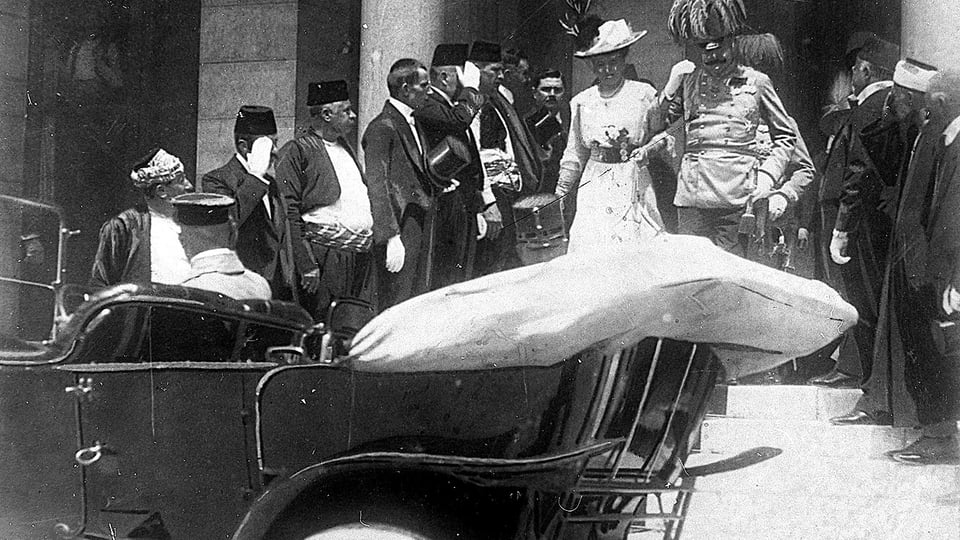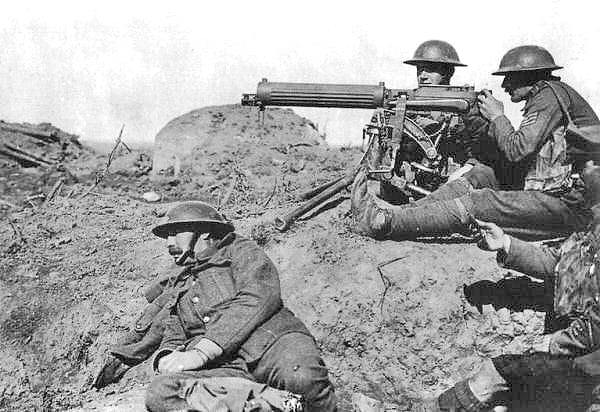World War I: A Warning for Today
June 28 marks the 103rd anniversary of the assassination of Archduke Franz Ferdinand. Though few will remember it, it is one of the seminal events of the 20th century.

On June 28, 1914, Archduke Franz Ferdinand (heir to the Austro-Hungarian Empire) and his wife, Sophie, were assassinated in Sarajevo. As most historians note, this single event eventually pushed the world into the most massive and devastating war humanity had ever seen to that point.
The archduke and his wife had traveled to the troubled region of Bosnia to inspect the imperial armed forces in this former territory of the Ottoman Empire. Just six years earlier, Austria-Hungary had annexed the territory—an act that infuriated Serbian nationalists who wanted to become a part of the newly independent Serbian nation.
Time and chance start a war
The royal couple were touring Sarajevo in an open limousine with little security. Earlier that day a bomb had been thrown at their car, but it rolled off before detonating, injuring an officer and some bystanders. The archduke decided to visit the wounded officer, but his driver accidentally took a wrong turn that brought him directly in front of a 19-year-old Serbian nationalist who happened to be loitering in the area. Seizing the opportunity, the young man ran toward the car and shot both Franz and Sophie at point-blank range. Within an hour, both were dead.
The political and military situation rapidly deteriorated as the dominoes fell toward war. Russia announced support for Serbia; Germany backed Austria-Hungary; and France and Britain were quickly drawn in. On July 28, 1914, Austria-Hungary declared war on Serbia, and in short order, the other major nations declared war on each other as what became known as World War I officially began.
British soldiers during the Battle of Menin Road Ridge, September 1917.
Although the war ended, the deep-seated hatred and animosity did not. Only 21 years later, the world was at war again after Germany invaded Poland, beginning the carnage of World War II—which led to the deaths of between 50 and 80 million people.
Since the end of World War II, there have been major military conflicts on the Korean peninsula, in Vietnam, in the Persian Gulf (twice), in Bosnia, in Kosovo and in Afghanistan. There have been revolutions and civil wars across the African continent. But there has not been another conflict coming close to the destruction and casualties of the two world wars.
That is, not yet.
The real war to end all wars
The 20th century saw warfare of unbelievable scale—culminating in the destruction of two Japanese cities by the atomic bomb. But even the destruction of the 20th-century conflicts pales compared to what Bible prophecy reveals is coming.
Matthew 24:22 reveals that without divine intervention, a coming time of war and destruction would destroy all human life. As of today, that is over 7.5 billion people. The “Four Horsemen” alone, as described in Revelation 6, will kill a quarter of mankind (verse 8). Based on today’s population, that is nearly 1.9 billion people!
World War I was triggered by an assassination. What will trigger the next major global conflict? Will it be a terror attack? The assassination of a leader? A surprise invasion? Or something we can’t even imagine?
Time will tell.
Are we preparing?
But the more important question is: Are you and I ready for it? I’m not talking about physical preparation—that is really impossible to do. What I’m referring to is spiritual preparation. Are we actively pursuing a closer relationship with God through prayer, Bible study, fasting and practicing genuine Christianity? Are we working to overcome our personal sins, draw closer to God and allow the fruit of God’s Holy Spirit to be exhibited in our lives?
How much longer do we have to do that?
In 1914 a single event—one that at another time might have become a mere historical footnote, became the spark that ignited a war that took millions of lives. What will be the spark in the future that will ignite the conditions described in Matthew 24? We have no way of knowing what will ignite this time of extreme trouble or when it will begin—but it will occur. God wants us to use this knowledge to prepare ourselves.
Are we?
For more insight into World War I, read “The War That Could Not End All Wars” and “World War I Lessons: The Importance of History.”
Date Posted: June 28, 2017



